
views
What causes puffiness under eyes?

If the puffy skin is slightly darker, it’s almost certainly genetic. If you’ve got “bags” under your eyes and the color of the skin is slightly different than the rest of your face, you’ve likely got a common condition known as periorbital hyperpigmentation. This sounds scary, but it’s perfectly harmless. It’s also exceptionally common across the globe. Unfortunately, it’s hereditary and you may not be able to totally get rid of it. There are still plenty of things you can do to minimize the puffiness, though! If your parents both have pronounced puffy eyes, you’re likely going to have the same feature regardless of what you do to your skin.
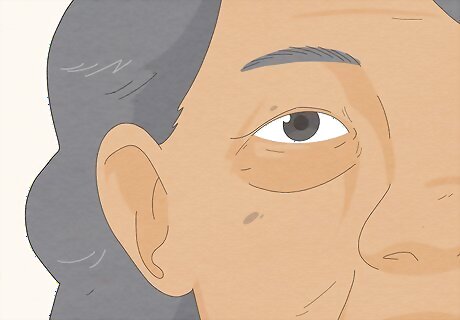
Puffy eyes can be a natural part of getting older. Another common cause for puffy eyes is your age. The skin under your eyes is naturally much thinner than the rest of the skin on your face. As you get older, the fat under that thinner skin moves around easily, and you end up with tiny gaps under your eyes. Fluid can accumulate in those gaps, which makes it seem like your eyes are puffy. If you notice this puffiness getting more noticeable over time, it’s probably just an unfortunate side effect of getting older.
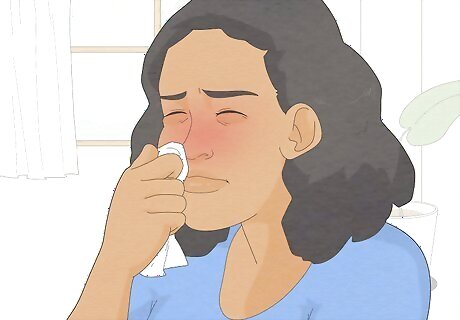
Allergies and salty food are likely the culprit if this happens randomly. If you find that your puffy eyes get worse when your nose is stuffy or it’s pollen season, your puffy eyes are probably the result of an allergy. Diets that are high in salt can also cause puffy eyes since excess sodium can make your body retain more fluids, and fluids have an easy time accumulating under your eyes. If this is the case, dealing with your puffy eyes may be as simple as treating your allergies or avoiding salty food. In some cases, there may be an underlying condition triggering the bags around your eyes. There are a handful of thyroid problems can cause this, for example. If you have any other symptoms popping up alongside your puffy eyes, go see a doctor just to be on the safe side. It’s unlikely you’re sick, but it’s best to be sure.
Will the puffiness go away if I get more sleep?
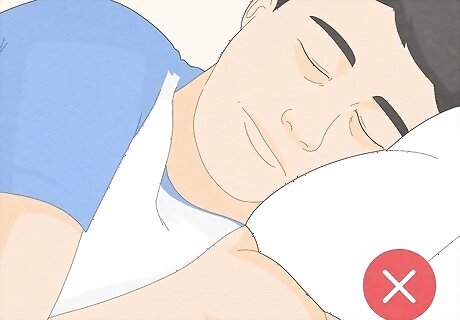
This is a common misconception, but probably not. It is true that a lack of sleep can cause bags under your eyes. However, these sleep-related bags often go away after you’ve gotten enough rest. If the bags are persistent and you’re getting plenty of sleep, the odds are low that getting more sleep will solve your problem.
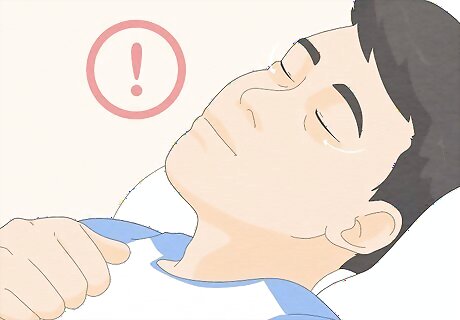
Counterintuitively, extra sleep may make the problem worse. Gravity pulls the loose skin under your eyes downward during the day, so when you lie down to sleep, there’s extra slack in that part of your face. This gives the fluids in your face an unfortunately convenient place to accumulate. The longer you’re lying down, the more time this fluid has to build up under your eyes. This is why you may notice that your puffy eyes are the most noticeable when it’s early in the morning. The fluids accumulate in this space partly because of the shape of your skull. If you picture your head when you’re lying down, your eye sockets kind of form these little valleys in your head. As a result, all of that fluid slowly trickles down to the area under your eyes.
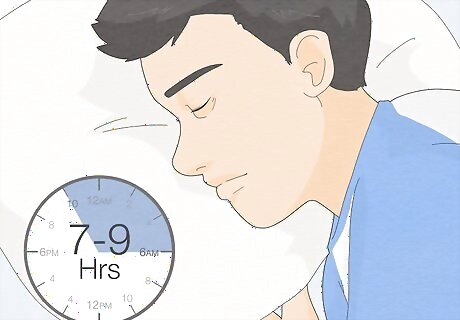
You should get 7-9 hours of sleep a night regardless of your eyes. The puffiness can be a result of too little sleep or too much sleep, so what’s the answer? All things considered, you might as well just get a healthy amount of rest! Regular sleep is important when it comes to maintaining a healthy immune system and metabolism. It also plays a major role when it comes to your memory and your ability to retain information. Do your best to get 7-9 hours of sleep every night.
How do you get rid of puffy eyes fast?
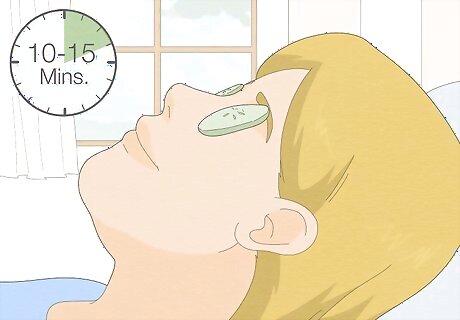
Lay a cold compress over your eyes for a few minutes. Grab a cold compress and wrap it in a cloth. Lie down and rest the compress over your eyes. Keep your eyes closed and just relax for 10-15 minutes or so. The cold compress will soothe any inflammation and reduce the blood flow under your eyes; this should minimize the overall appearance of the bags. You can use cold cucumber slices, tea bags, or refrigerated spoons if you’d like. These things may help your skin rehydrate or relax, but it’s probably not going to make a huge difference. The key thing is that whatever you’re putting over your eyes is cold.
How do you get rid of puffy eyes naturally?
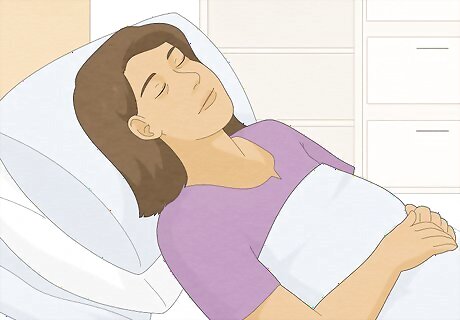
Prop your head up while you sleep. Instead of lying perfectly flat with your head on a small pillow, stack a few pillows on top of one another so that you sleep with your upper body at a raised angle. This can make it easier for the fluids that accumulate under your eyes to drain at night, since gravity will help pull them down away from your face.
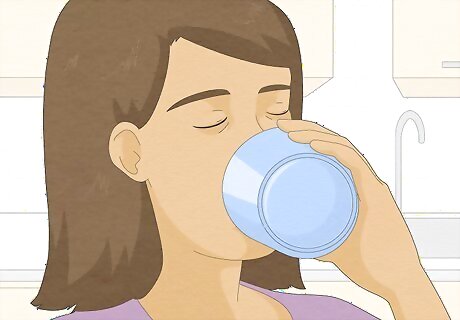
Drink more water and consume less alcohol. Dehydration can cause blood to build up under your eyes, so drinking plenty of water during the day may reduce this puffiness. In addition, since alcohol causes you to urinate more often, it can leave you dehydrated after a long night of drinking. As a result, drinking more water during the day and cutting back on alcohol before bed may make your eyes less puffy over time. Cutting down on the amount of fluid you consume in the hour or two before bed may help as well. Don’t avoid drinking water if you’re thirsty or anything like that, but just be conscious of how much fluid you’re consuming.
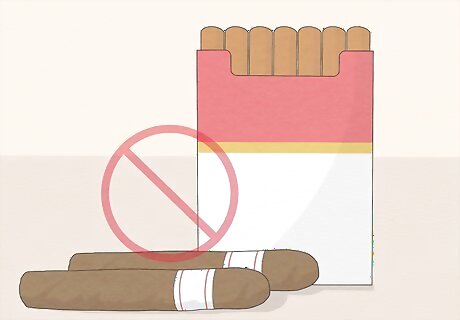
Stop smoking to minimize the wear and tear on your skin. On top of the fact that smoking is harmful for your health, smoking also happens to be bad for your skin. If you’re an avid tobacco user, quitting may be the best thing you can do for the bags under your eyes.
How do I permanently remove eye bags at home?
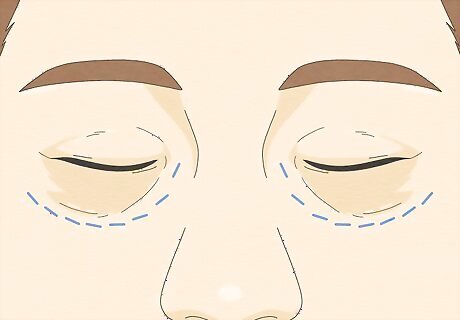
You can’t remove them at home permanently, but a doctor can! There are several medical procedures that will permanently solve this issue, although you won’t be able to do any of them at home. Visit a dermatologist and ask them to take a look at the skin around your eyes. They’ll be able to recommend the best procedure based on your age and the health of your skin. Potential treatments include: Laser resurfacing. These laser treatments can tighten the skin around your eyes to reduce inflammation. Botox. These injections can relax the muscles around your eyes so that the surrounding muscles don’t pull on the areas around your eyes. Fillers. Plastic surgery can fill in the gap between your skin and the fat underneath your eyes. Eyelid surgery. Also known as blepharoplasty, a surgeon will perform this procedure to remove excess fat and reshape your eyelids and skin.
Will cucumbers and tea bags help?
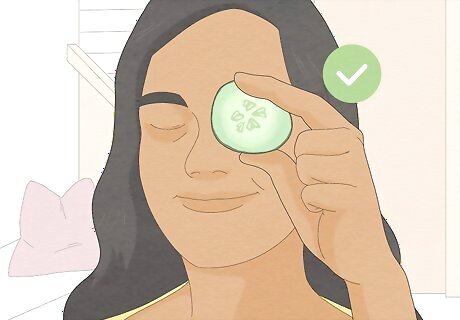
So long as the cucumber slices are cold, they’ll help! Cold cucumber slices will help soothe the inflammation around your eyes. It’s unclear if the cucumbers will give your skin an “extra” boost, though; in all likelihood, the cucumbers are interchangeable with a cold compress when it comes to the impact on puffy eyes. These home treatments and natural remedies are probably going to have very little impact if your puffy eyes are hereditary. They won’t hurt anything though, so if you want to have a self-care spa session with some cucumbers over the eyes, go for it!
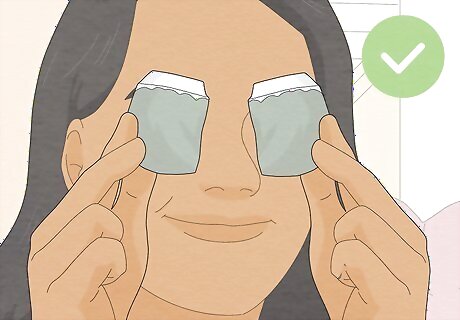
Tea bags might help too, but again, probably because they’re cold. A lot of people use tea bags to treat eye issues because tea contains caffeine, which can constrict blood vessels. In theory, caffeine will reduce the puffiness under your eyes. However, there’s no scientific evidence that the caffeine has much of an impact, and it’s likely that cold tea bags simply work because they’re cold. Still, they will work if you want to use some tea bags instead of cucumbers or a cold compress! This is another one of those things that won’t cause any harm, so feel free to give it a shot if you’d like.
Which eye cream is best for puffy eyes?
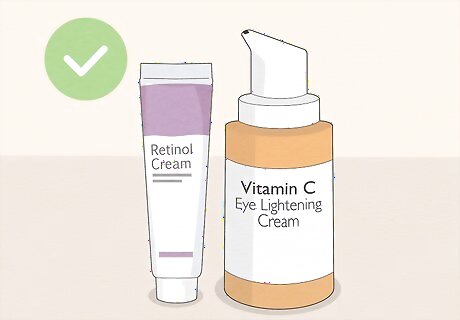
Anything with retinol and vitamin C may help, but only temporarily. Moisturizing eye creams that contain retinol, vitamin C, caffeine, or antioxidants may help curb any discoloration or inflammation you’re experiencing around the eyes. Unfortunately, the results are likely going to be temporary. Follow the instructions on the label of your eye cream to apply it. It may not solve the problem forever, but it should help reduce the puffiness for a bit. Retinol and vitamin C are acidic. Spot test these ingredients on some less sensitive skin first, and don’t use them on your eyes if they irritate your skin.

Don’t use hemorrhoid creams under your eyes. Hemorrhoid creams, like Preparation H, are regularly suggested as a hack for eye circles. These creams contain ingredients that do reduce puffiness by shrinking blood vessels, but they will also irritate your sensitive facial skin. On top of that, they can make the skin turn red, which may make your circles more noticeable. There may be a temporary benefit, but these creams simply aren’t designed to be used on your face, and there are no scientific studies that demonstrate it’s safe to use these products this close to your eyes.












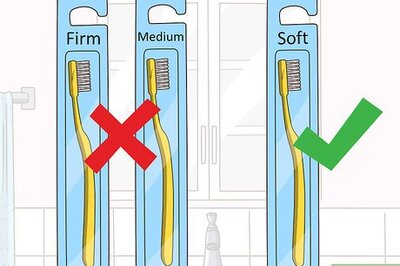






Comments
0 comment